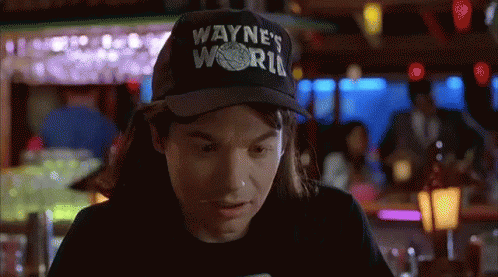An argument only a crazy economist would make
Is magically reducing pollution always a good thing?
Are we, as free thinkers, still willing to follow the logic of our economic arguments, even if the conclusions shock us? I hope so. Economic Forces is. Who’s coming with me on a logical journey? Count this as your trigger warning.
Over a year ago, Elliott Ash, Daniel Chen, and Suresh Naidu released an interesting paper on how an important law and economics conference influenced judges’ decisions after attending. The paper is now R&R at QJE, so it’s not some sluff paper.
But the usual voices online got fixated on a particular quote from Armen Alchian:
Give me a capsule that will magically clean all the air in Los Angeles ... Beg me to crush it. ... I won't crush the capsule. Because, if I do, poor blacks will have to pay $20 a month more for land rental... [T]he black in Watts, already used to living with bad air, loses his discount for doing that.
That’s the entirety of the discussion in the paper. No elaboration. No context.

First, it is worth noting that this is a classic teaching technique: here is an argument you will find shocking. Why is it right or wrong? I used this technique in my newsletter on monopolies. We leave out some of the counter-arguments (sorry). The exercise is left to the reader/student. Teaching is a very different context than arguing for a ruling in front of an actual judge.
Second, for this shock-and-awe technique to be useful, the argument must have some truth to it or teach you something. It’s not just “we should eat babies,” which is provocative but lacks a direct lesson.
So let’s work it out the lesson together. Is there a logical reason that Alchian would make such an audacious claim? When can a “free” pollution reduction actually hurt people? Or is it just a “sociopathic [way} of thinking about things,” as one of the authors claimed?
Let’s start with a simple example. Suppose there are ten houses and ten families who want to rent houses. The price of the house is determined by supply and demand.
But now suppose one of the houses is in the city center so that the air is worse. To make the example stark, one family does not care at all about air quality and nine of the families refuse to live in the city center house; the nine families are willing to pay $0. In this simple example, the rental rate for the inner city house drops close to zero, since no other family would bid the price up.
In this simple example, removing air pollution makes the family living in the city worse off. Their rent increases and they do not benefit from reduced pollution. If we care about the welfare of the worst-off in society (because we are Rawlsians), and the city family is the worst-off, it is easy to arrive at Alchian’s conclusion. We should not eliminate the pollution.
The example is contrived. It’s an example… But the principle is more general. If
We believe policy should be focused more on the welfare of low-income families (a reasonable policy position),
Low-income families are more willing to sacrifice air quality for cheaper rent (an empirical observation),
Then we should be hesitant about unilaterally removing pollution without some way to compensate the low-income families.
It’s not some finger tapping, power-plant-running, sociopath tycoon’s argument.

It’s a simple consequence of thinking through price theory and how actions in one area reverberate across different markets. Markets are interconnected. That’s price theory 101.
It’s also about comparing the marginal vs. the inframarginal people: the low-income people are the marginal consumers of the clear-air housing market. They are run out when the price rises. They are inframarginal consumers in the market for housing with pollution; it is a lower cost for them to live with pollution and so they earn rents when there is pollution.
Now, if you’re even half-way clever, you will eventually think of a comeback. We are reacting to one paragraph out of context, not a treatise. The most common I saw was “Oh silly Armen, if that’s true, does that mean you want to increase pollution to further lower prices for houses in the city?”
Maybe that is the logical conclusion. But one way out of that repugnant conclusion is to remember that there fixed costs from investments out in the world. To use a 101 example, if the price of a good rises, you may decide to open a factory. But you can’t just get that investment back when the price falls back down. With fixed costs, price changes aren’t symmetric.
Returning to the pollution example, it’s not just that the city families are more willing to live with pollution and so the cost is low to them. They have made investments in that community and for living with the pollution. Any such investment makes a stronger case for keeping the status quo and against both decreasing or increasing pollution. In a world with fixed costs, people can be hurt by both price changes they don’t expect.
The economists who are most shocked at this argument are comfortable with it in another area: international trade. The Stopler-Samuelson theorem tells us that when the price of some product falls, then so does the wage for the types of workers that are heavily used in that industry. For example, when globalization leads to a drop in the price of clothing, the U.S. workers who have skills in making clothing also see a drop in their wages.
Because these workers tend to be low income, people argue that we should “protect” workers and inhibit free trade and globalization. After all, there are winners and losers from the magical capsule that is international trade. These workers have already invested in skills. They will lose out on the use of all that training… At this point, the argument should be familiar.
I’m not going to argue for keeping pollution or restraining free trade. That’s not my role as an economist. I’m simply here to lay out the arguments. You can reach your own conclusions about policy.
But we must agree on one thing: If you have thought about something for a whole 10 seconds and conclude that Armen Alchian got the economics wrong, you should probably rethink that.
In other news, in my real work, I’ve updated two papers that readers of this newsletter may like. They are technical papers. One (with Rafael Guthmann) is on how much information is needed in decentralized markets. The other (with Jackson Mejia) is on inflation and MMT.



I'd be interested in seeing critics of Alchian square the pollution example with their beliefs about gentrification.
Ok, I admit, maybe I'm crazy